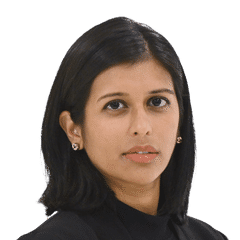Ability, character and independence: What voters may look out for as Singapore elects its president
Sign up now: Get ST's newsletters delivered to your inbox
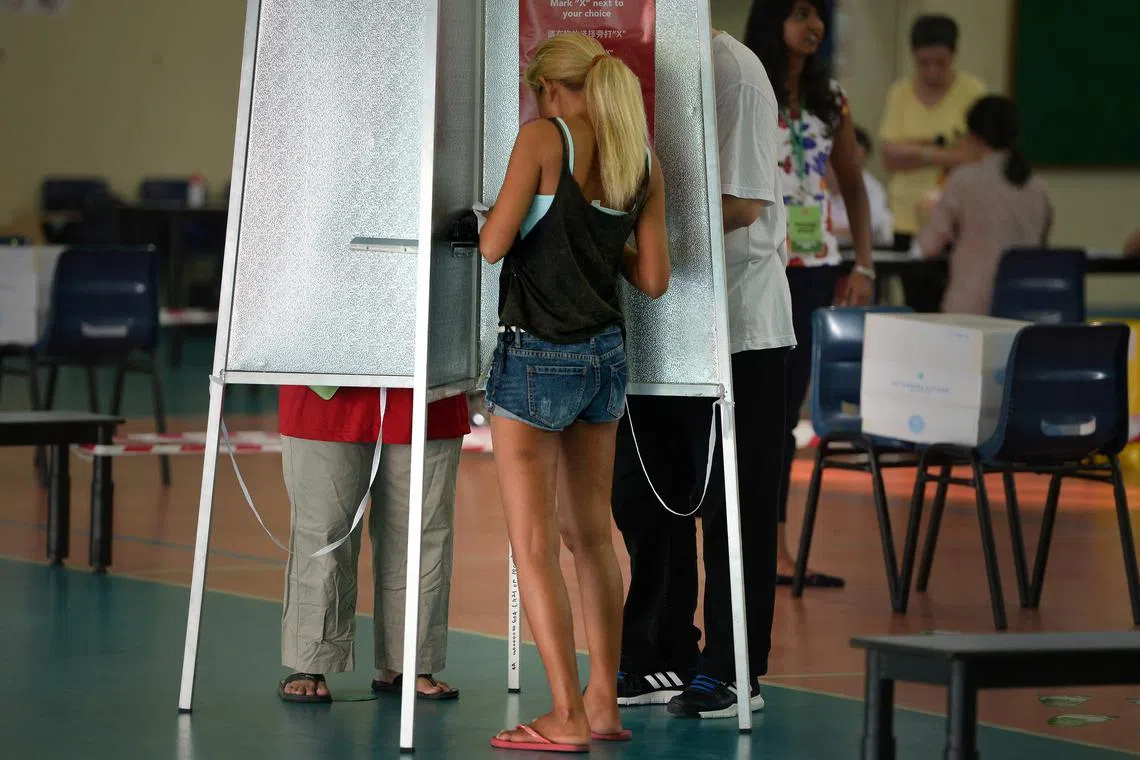
Political observers say these are three key issues that may be on the minds of voters when they head to the polls on Sept 1.
PHOTO: ST FILE
SINGAPORE - How independent will the president be? Which of the three candidates fulfil the ambit of the highest office in Singapore? What character and attributes will appeal to voters?
As the presidential election campaigning hits Day 6 on Sunday, political observers say these are three key issues that may be on the minds of voters when they head to the polls on Friday.
Independence
The matter of who is independent has dominated a large part of the three candidates’ narratives for why they should be elected.
Former GIC chief investment officer Ng Kok Song, 75, former NTUC Income chief executive Tan Kin Lian, 75, and former senior minister Tharman Shanmugaratnam, 66, are running for the presidency.
Assistant Professor Walid Jumblatt Abdullah of Nanyang Technological University’s School of Social Sciences laid out the strategies that the candidates have set out for themselves.
He said: “Mr Tharman is the safe choice, that is how he portrays himself – the most competent one. Mr Ng is the establishment, but non-endorsed and independent candidate, whereas Mr Tan is the non-establishment, non-endorsed, independent, even anti-establishment candidate.”
Mr Tharman said during the first candidate broadcast
The former senior minister’s ties to the ruling party – Mr Tharman was a member of the People’s Action Party (PAP) before he resigned to run for president, and previously held positions in the Cabinet – have been repeatedly highlighted by the other two candidates.
Mr Tan has pegged himself as a candidate who wants to give the people of Singapore the chance to vote for a president who is truly independent of the ruling government – a point he made during his two-minute Nomination Day speech
The second-time presidential candidate was previously a PAP member, but left 15 years ago.
For his current presidential campaign, Mr Tan is supported by some with links to the opposition, including Mr Lim Tean, founder of political party Peoples Voice.
Meanwhile, Mr Ng emphasised in an interview with The Straits Times on Friday that it is important that the president be “unbiased”. Out of the three candidates, he has never belonged to any political party.
“If (the president) has a strong political affiliation, I think that stands in the way of him being able to unite people with different political views, different political affiliations,” said Mr Ng.
With candidates going back and forth on why they should be seen as independent, Prof Walid believes that this presidential election (PE), even though it is not a general election, will “ultimately… be a referendum on the PAP for many people”.
He added that campaigning would matter to some extent, but he was not sure how much.
Likewise, Dr Mustafa Izzuddin, a senior international affairs analyst at Solaris Strategies Singapore, said there may be some who will treat the presidential election as a general election to “engage in protest voting to show their displeasure to the government of the day”.
He said while the majority of the electorate have a “general understanding” of what the president does, there is still much more awareness required for the specificities of the role.
But he believes that “pragmatic voting would prevail over voting in protest”, and the candidate that best fits the role of the elected presidency will emerge as the winner.
What a president can and cannot do
Another key issue that has arisen is the role and scope of the presidency
Mr Ng said in his Nomination Day speech that he is running for president to protect Singapore’s three national treasures:
At times during his campaign, Mr Tan has said he would use the president’s office to raise issues about the cost of living, housing and jobs.
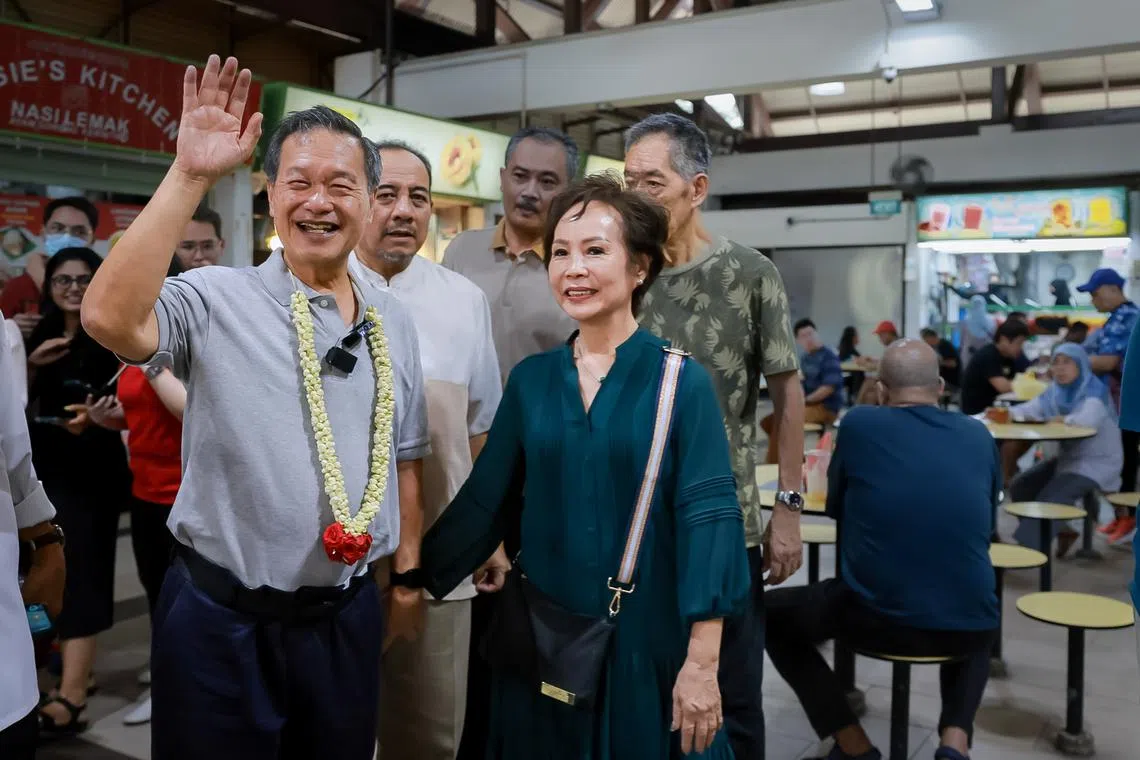
Presidential candidate Tan Kin Lian and his wife Tay Siew Hong visiting Geylang Serai Market and Food Centre on Aug 25.
ST PHOTO: GAVIN FOO
At a walkabout at Geylang Serai Market and Food Centre on Friday, he said it “is a matter of sitting down together and seeing where we agree” when working with the prime minister.
As for Mr Tharman, he said at his walkabout at Toa Payoh Hub on Wednesday that if the president and the prime minister have respect for each other, then the president will have a “greater ability to be able to provide independent advice and will know that it is taken seriously”.
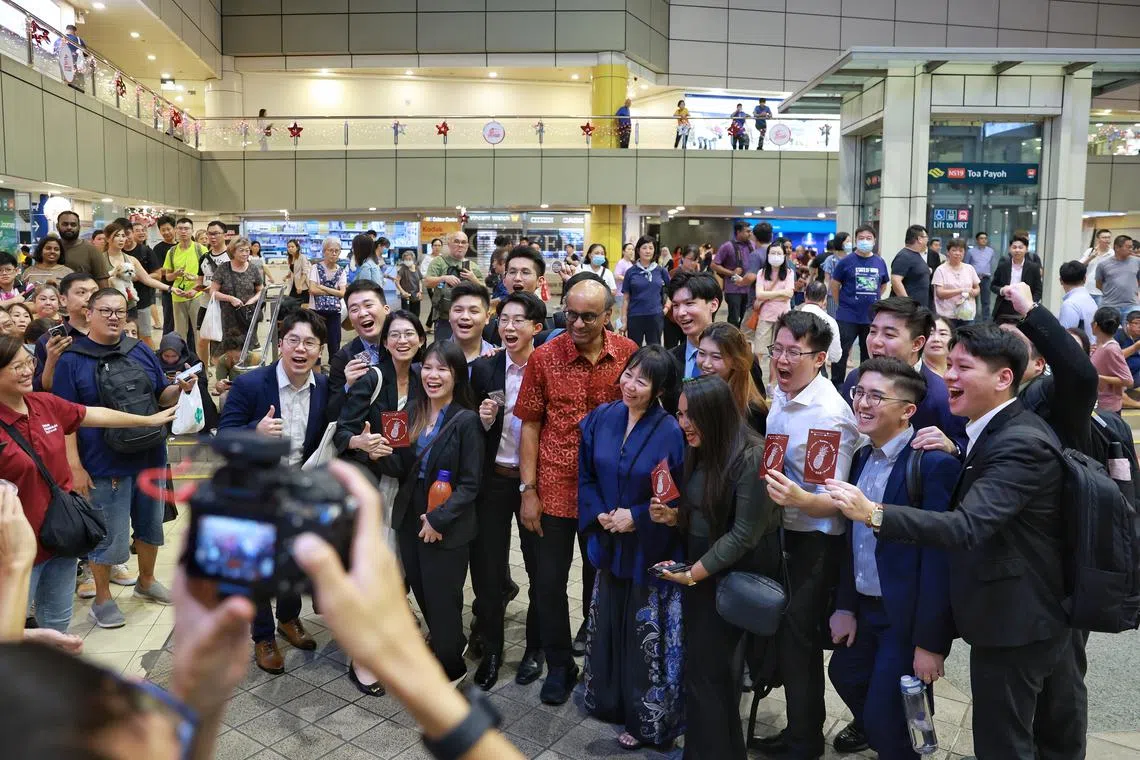
A group of young people shouting “huat ah” while taking a photo with presidential candidate Tharman Shanmugaratnam and his wife Jane Ittogi at Toa Payoh Hub on Aug 23.
ST PHOTO: KEVIN LIM
Political observers ST spoke to said that the president’s role is clearly laid out in the Constitution, and there is little wiggle room to act outside what has been established.
Dr Chong Ja Ian, associate professor of political science at the National University of Singapore, said there has been some discussion about whether candidates can exercise a check on a sitting administration.
“That is besides the point,” he said. “The office of the president has no such powers.”
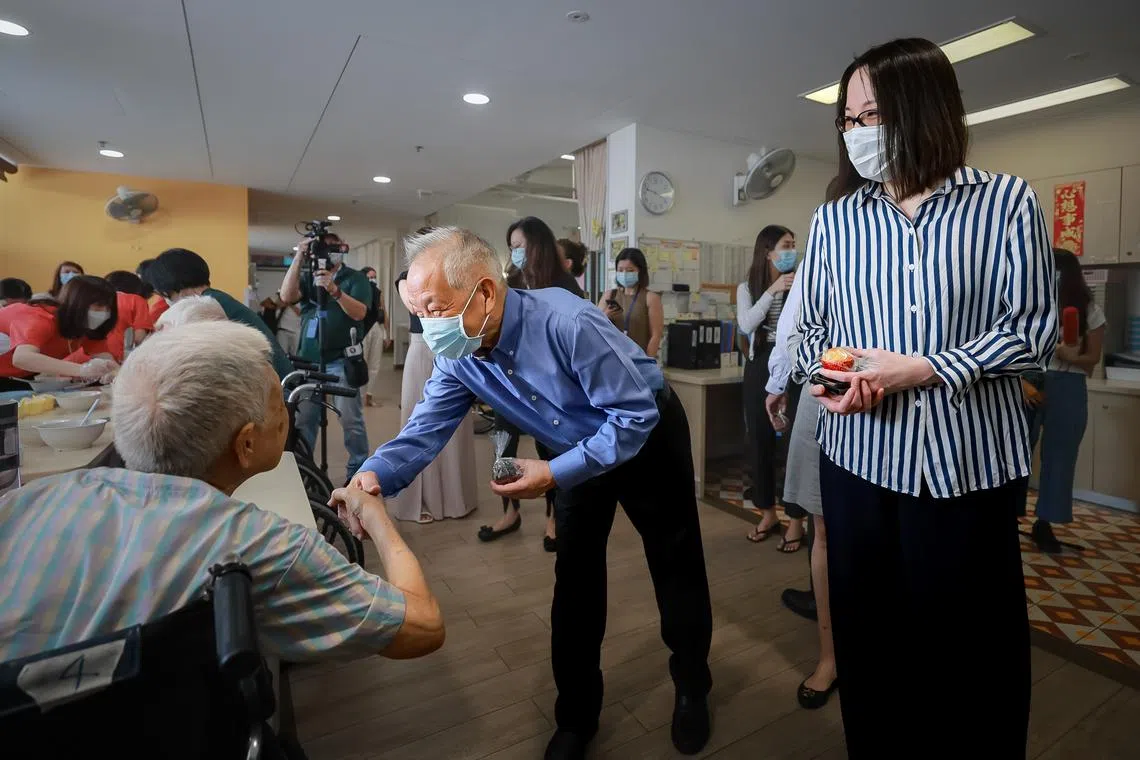
Presidential candidate Ng Kok Song and his fiancee Sybil Lau visiting residents in the Kwong Wai Shiu Hospital’s dementia ward on Aug 24.
ST PHOTO: GAVIN FOO
Dr Chong said that even on issues such as vetoing the use of reserves and appointments, the Council of Presidential Advisers needs to concur with the president. If not, the matter goes to Parliament, which then requires at least a two-thirds majority by MPs, excluding Nominated MPs, to overrule the president through a motion.
Dr Gillian Koh, senior research fellow at the Institute of Policy Studies (IPS), said that outside of the areas where the president has the power to exercise his discretion, he must act on the advice of the Government.
She pointed out that it was important for voters to take note of what candidates are offering, consider if they are indeed within the power of the president to perform, and if so, how they would do it, before making their choice.
“While the elected presidency was established to guard the reserves and preserve integrity in Government if it goes rogue, what happens if it is the president who goes rogue?”
Character and relatability
Going on the campaign trail – both on the ground and on digital platforms – also means the personal lives and the conduct of the three candidates have generated interest from the public.
For example, Mr Ng has opened up about how he found love again with his fiancee Sybil Lau, while Mr Tharman has spoken about how he met his wife Jane Ittogi.
Mr Tan, who was with his wife, Madam Tay Siew Hong, for the first time on the campaign trail on Friday, shared that she took care of their children while he was busy running NTUC Income.
However, in the past week, Mr Tan has come under fire for his past Facebook posts,
The Association of Women for Action and Research (Aware) said it shared the public’s concerns that a candidate who has a history of objectifying women has been cleared to participate in the presidential election.
In response, the Presidential Elections Committee said the issuance of an eligibility certificate allowing Mr Tan to contest the election did not amount to an endorsement of his social media posts.
“Any additional facts regarding a candidate which come to public attention after the candidate’s certificate has been issued would be for the electorate’s consideration and assessment before casting their votes,” said the committee.
Mr Tan said criticism over his posts was part of a smear campaign.
Singapore Management University associate professor of law Eugene Tan said Mr Ng and Mr Tharman have kept to the dignity and decorum of the office they are seeking to win the mandate for.
“In this regard, they may even be seen as boring or seeking to maintain the status quo of the presidency.”
With a few days left for campaigning, Mr Tan should not let the controversies overwhelm his campaign, which could raise legitimate questions of whether he can be a unifying figure, said Prof Tan.
Dr Carol Soon, principal research fellow at IPS, where she heads the society and culture department, said that candidates need to persuade voters why they are “the man for the top job” during the campaigning period.
She added that the three candidates need to be careful about what they put forth.
“Candidates have to be very mindful of not overselling what they will do, especially with ramped up voter education on the roles and responsibilities of a president, lest they come across as either uninformed or making promises they will not be able to deliver.”
Dr Mustafa said what it could come down to is voters choosing a president who is relatable.
By and large, he said, voters are likely to choose someone who genuinely understands what the role of the president is, not what the candidates would want it to be.
The person should also be able to serve as a “diplomat extraordinaire on the international stage” and portray a down-to-earth personality with empathy and compassion, he added.
Dr Mustafa said: “The more relatable the candidate is to the voters, the higher is the chance for this candidate to win the PE.”

